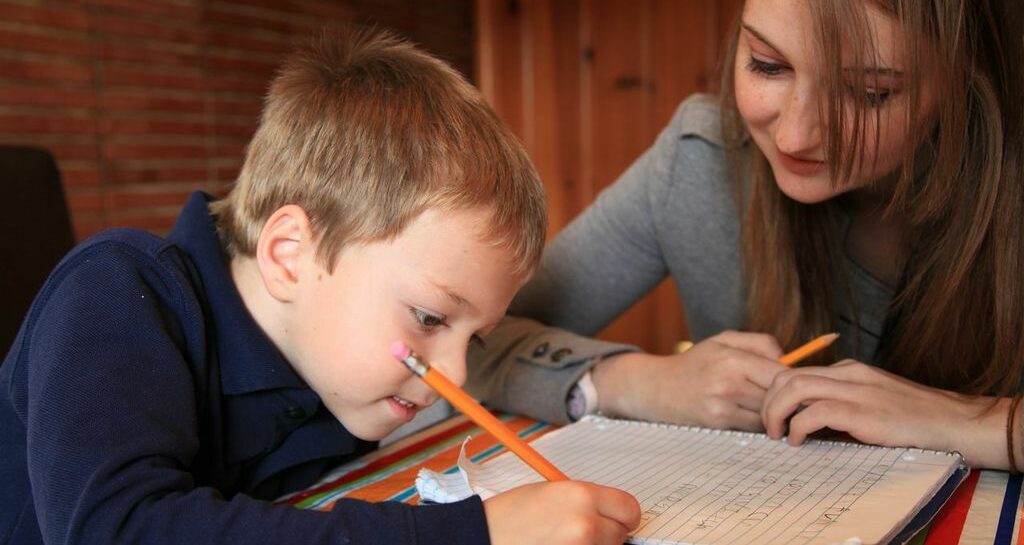| Minor Requirements | Credits |
|---|---|
| Required Courses | 12 |
| Electives | 8 |
| Total | 20 |
Because some of the required courses and many of the electives meet General Education HPU LEAD requirements, students can complete the minor while also earning credit toward the General Education core.
Students will also complete an ePortfolio of their work, and at least 100 hours of service in High Point (including 25 hours per SL course).
| Course | Course Title | Credits |
|---|---|---|
| CSI 2020 | Identity, Gender, and Social Justice in High Point | 4 |
| CSI/PHL 2610 | Civic Responsibility and Social Innovation | 4 |
| CSI 4098 | Signature Work Praxis I | 2 |
| CSI 4099 | Signature Work Praxis II | 2 |
| Select eight credits from the following list: Any 2000-level or above courses with a Service Learning "SL" designation, or: |
||
| COM 1110 | Human Communication | 1 |
| CSI 1001 | Service & Success Workshop | 1* |
| CSI 1002 | Civic Engagement Workshop | 1* |
| CSI 2001 | Civic Leadership Workshop | 1* |
| CSI 2002 | Community-Based Research Workshop | 1* |
| EDU 2000 | History of American Education | 4 |
| EDU 2100 | Educational Psychology | 4 |
| ENG 2125 | Introduction to Public & Professional Writing | 4 |
| ENG 2140 | SL Digital Writing for Social Action | 4 |
| ENT 4220 | Social Entrepreneurship | 4 |
| ENV 1110 | Environmental Science | 4 |
| HST 2201 | American Identities | 4 |
| HST 2217 | Slavery and Freedom in America | 4 |
| HST 2247 | The Long Freedom Struggle | 4 |
| HST 2248 | Black American Narratives | 4 |
| HST 2240 | US Women’s History | 4 |
| HST 2227 | The Struggle for Control: A History of American Business and Labor | 4 |
| JOU 1300 | Never Stay Silent | 4 |
| PSC 2310 | American Politics | 4 |
| PSC 2510 | Comparing Foreign Political Systems | 4 |
| PSC 2710 | International Relations | 4 |
| PSY 2000 | Introduction to Psychology | 4 |
| PSY 2400 | Social Psychology | 4 |
| SOA 1010 | Introduction to Sociology | 4 |
| SOA 1020 | Introduction to Cultural Anthropology | 4 |
| SOA 2030 | Sociology of the Family | 4 |
| SOA 2040 | Race and Ethnicity | 4 |
| Course Descriptions | ||
CSI 2020 SL. Identity, Gender, and Social Justice in High Point. This course explores the relationship of identity to ongoing social justice movements for equality within the frame of a contemporary U.S. context. As a service learning course, will partner with community programs that address the individual and collective needs of the city of High Point’s residents, enhancing their understanding of course concepts through the application of world problem solving. The weekly readings and classroom meetings will engage students in a critical examination of identity and social justice theories alongside current events in the High Point community. Four Credits.
CSI/PHL 2610 SL. Civic Responsibility and Social Innovation. This course examines the civic responsibilities HPU students have for the world in which they live. Students will learn ethical frameworks through which to analyze a breadth of pressing social issues (like poverty, racism, sexism, educational disparities, etc.). This, however, is more than a class in ethical theory. The class pushes students to engage in social change, social innovation, and best practices for actually making a difference. Students will work on service projects that address the social issues discussed in class, and the course content will help students craft future service projects that aim toward sustainable community change. Prerequisite: One previous SL course. Four Credits. [E,SL]
CSI 4098. Signature Work Praxis I. This is the first part of the capstone series for the minor in Social Innovation. As a course requiring a “signature work,” students are challenged to address an unscripted problem of personal and social significance. Students will complete community-based research projects, community transformation projects, social entrepreneurship endeavors, or other forms of a signature work capstone that draw on students’ deep knowledge of the community and their coursework, both in and beyond the minor. This project will require significant writing, reflection, reading, and practical engagement in the community. The Signature Work Praxis develops in students the practices of problem-solving and integrative learning; it prepares students in their fourth year to go out into the world ready to bring their liberal arts education to bear on the professional and social challenges they encounter. Prerequisite: CSI/WGS 2020,CSI/PHL 3010,and 100 hours of documented and approved service in the City of High Point. Two Credits.
CSI 4099. Signature Work Praxis II. This is the second part of the capstone series for the minor in Social Innovation. As a course requiring a “signature work,” students are challenged to address an unscripted problem of personal and social significance. Students will complete community-based research projects, community transformation projects, social entrepreneurship endeavors, or other forms of a signature work capstone that draw on students’ deep knowledge of the community and their coursework, both in and beyond the minor. This project will require significant writing, reflection, reading, and practical engagement in the community. The Signature Work Praxis develops in students the practices of problem-solving and integrative learning; it prepares students in their fourth year to go out into the world ready to bring their liberal arts education to bear on the professional and social challenges they encounter. Prerequisite: CSI 4098. Two Credits.
CSI 1001. Service and Success Workshop. This course will equip first-semester Bonner Leaders with the skills and resources they need to do effective service and succeed in college. In the course, students will explore strategies successful students employ in college, they will investigate the context, assets, and problems faced by people in the Piedmont Triad, and they will begin to shape their personal and professional goals for their time at High Point University and beyond. Prerequisite: Must be a Bonner Leader. One Credit.
CSI 1002. Civic Engagement Workshop. This course equips second-semester Bonner Leaders to practice effective service in the diverse community of High Point. The course exposes students to a range of service models, which vary in their effectiveness, helping students craft an empowering and sustainable approach to service. A key part of these approaches must include understanding how to engage with diverse others, reflecting on one’s own biases, and working across difference. Through exploring race, gender, and religious differences, the course aims to prepare students to enter these difficult conversations with the hope of promoting deeper understanding and real partnerships for service. Prerequisite: Must be a Bonner Leader. One Credit.
CSI 2001. Civic Leadership Workshop. This course prepares third-semester Bonner Leaders to take on greater leadership at their service sites and on the HPU campus. Students will learn key markers of effective leadership, reflect on the systems, stories, and structures of leadership within their particular sites, and develop their own models of leadership. As part of their leadership models, students will reflect on the ethical implications of leadership and consider how they can help transform neighborhoods, non-profits, and student groups to practice responsible civic leadership. Prerequisite: Must be a Bonner Leader. One Credit.
CSI 2002. Community-based Research Workshop. This course equips fourth-semester Bonner Leaders with the tools they need to effectively map the needs and assets of the communities and organizations in which they work. Bonners will develop their research and assessment skills as they help their partner sites research an issue critical to the effective functioning of the organization and its core mission. Through their research, students will ask questions of social justice, equality, fairness, and more. Prerequisite: Must be a Bonner Leader. One Credit.
The Social Innovation minor develops the University’s emphasis on preparing students for Personal and Social Responsibility and Integrative Learning, as evidenced in the LEAP and AAC&U’s Essential Learning Outcomes. The minor forms civic knowledge and engagement, intercultural knowledge and competence, ethical reasoning and action, and lifelong learning – all of which are key components of a liberal arts education.
Assessment in the minor occurs both in classes and through the development of an ePortfolio. All students will begin an ePortfolio when they begin the program, usually in the first-semester of their freshman year. Each student’s ePortfolio is assessed at the end of every academic year, with written comments returned to each student.
Learning Outcomes
The minor builds on the learning outcomes of the Service Learning (SL) Program. These outcomes appear on all CSI and SL syllabi and are assessed with a rubric based on the AAC&U VALUE Rubrics for Civic Engagement and Ethical Reasoning.
- Integrate the course material and service experience and apply it through the creation of some product (paper, poster, presentation, program, etc.).
- Identify complex ethical issues, entertain different perspectives on them, and evaluate one’s own position.
- Understand and address at least one unscripted problem that faces the Piedmont Triad by engaging the community through authentic conversation and leadership.
The minor will also aims to fulfill the six learning outcomes on the AAC&U’s Civic Engagement VALUE Rubric, and these outcomes are assessed through the students’ ePortfolios.
- Connects and extends knowledge (facts, theories, etc.) from one’s own academic study/ field/discipline to civic engagement and to one’s own participation in civic life, politics, and government.
- Provides evidence of experience in civic engagement activities and describes what a student has learned about oneself as it relates to a reinforced and clarified sense of civic identity and continued commitment to public action.
- Tailors communication strategies to effectively express, listen, and adapt to others to establish relationships to further civic action.
- Demonstrates independent experience and shows initiative in team leadership of complex or multiple civic engagement activities, accompanied by reflective insights or analysis about the aims and accomplishments of one’s actions.
- Demonstrates ability and commitment to collaboratively work across and within community contexts and structures to achieve a civic aim.
The Social Innovation Signature Work Praxis employs the AAC&U’s Problem Solving and Integrative Learning VALUE Rubrics to evaluate students’ progress in their signature works. All VALUE Rubrics may be found here. AAC&U VALUE Rubric.

